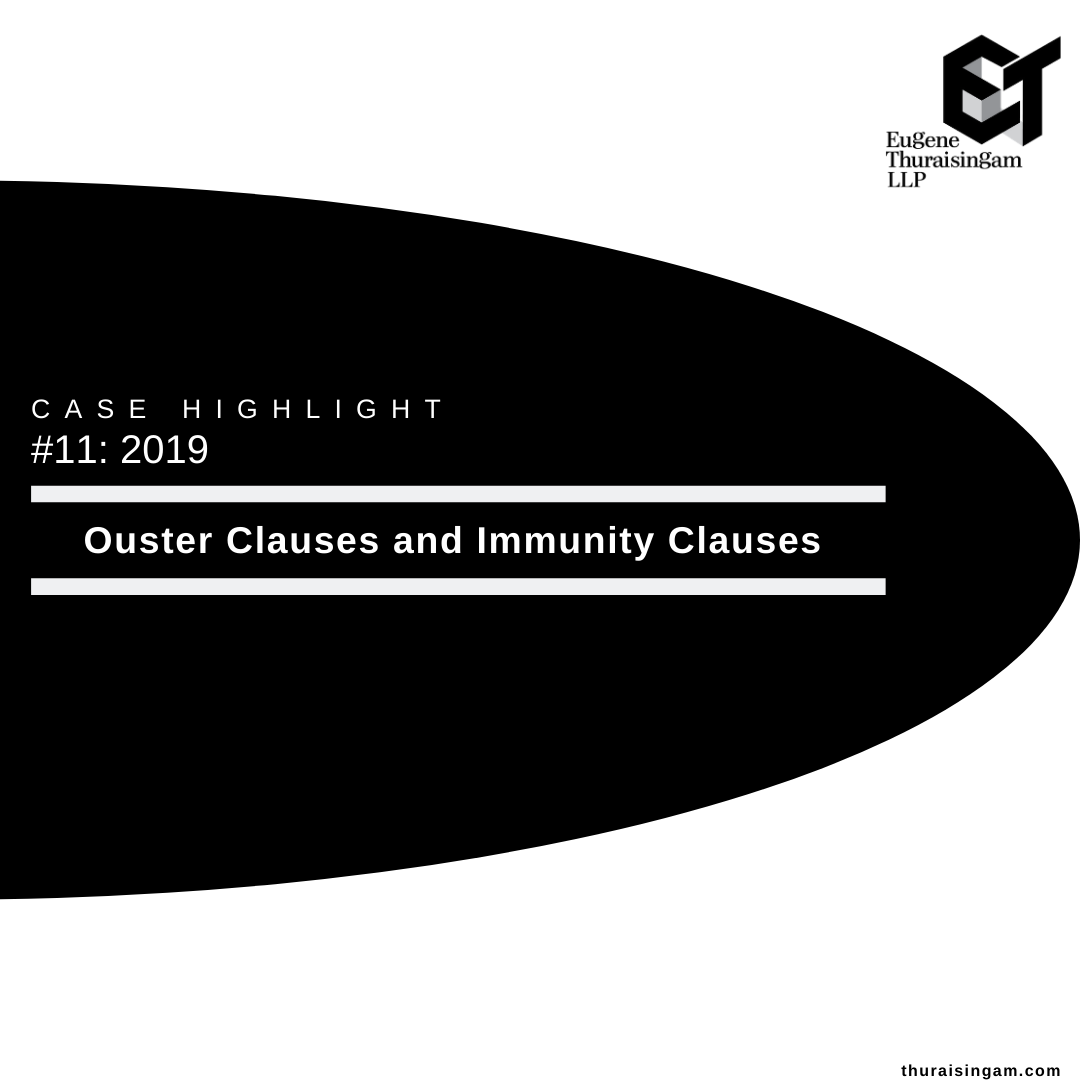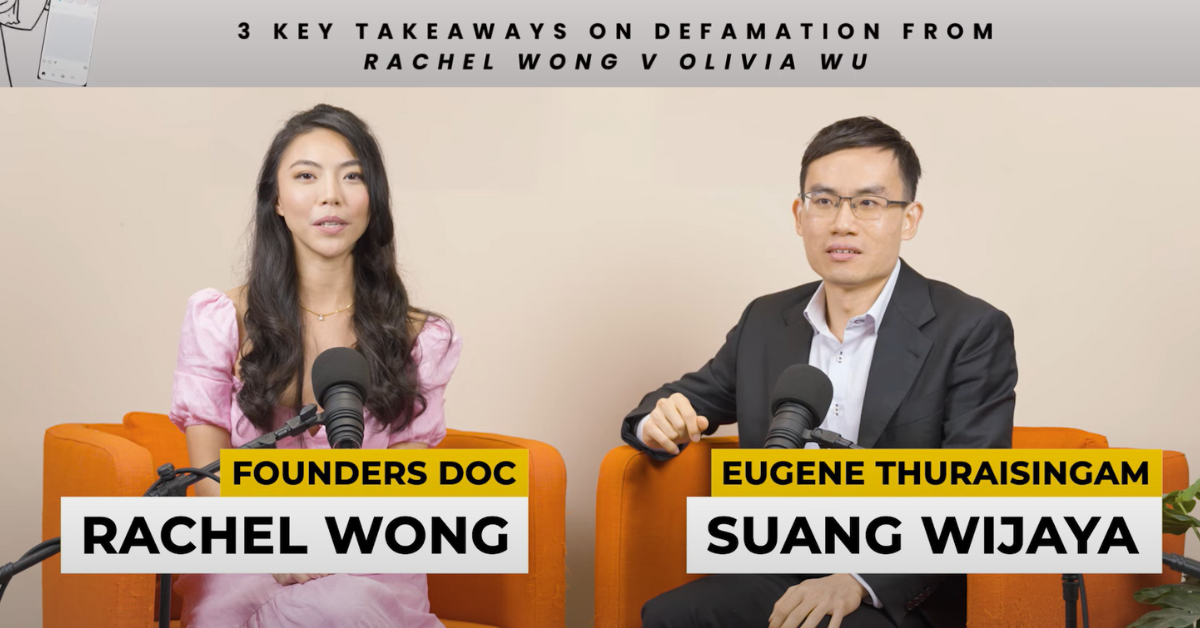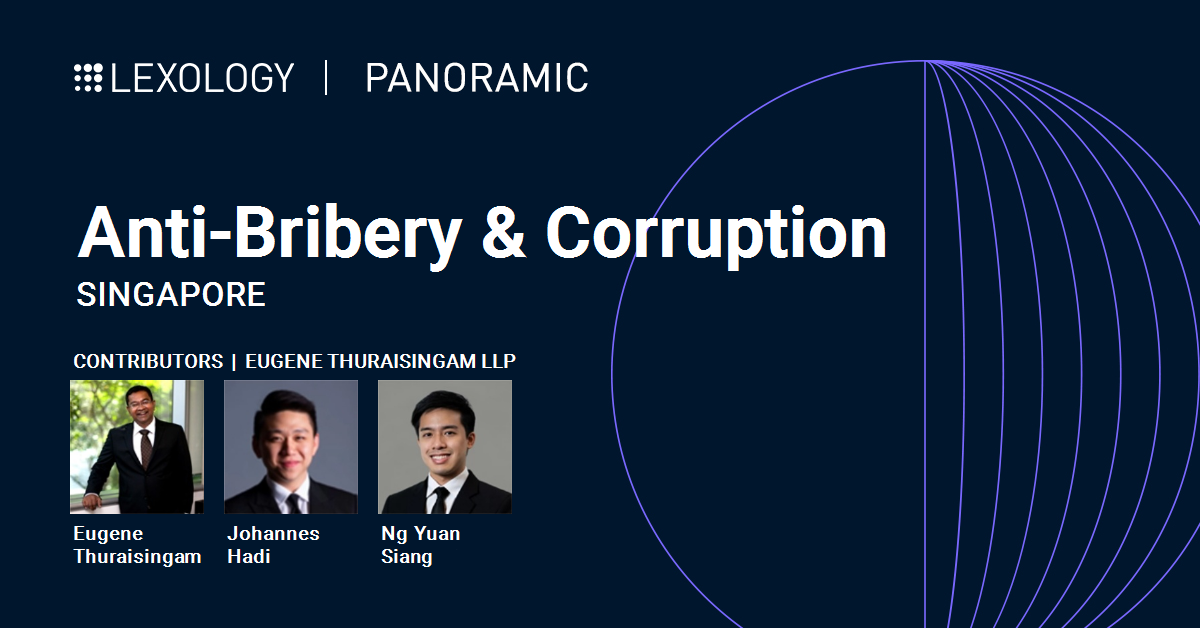Ouster Clauses and Immunity Clauses
Nagaenthran a/l K Dharmalingam v Public Prosecutor and another appeal [2019] 2 SLR 216
Section 33B(4) of the Misuse of Drugs Act states:- “[t]he determination of whether or not any person has substantively assisted the [CNB] in disrupting drug trafficking activities shall be at the sole discretion of the Public Prosecutor and no action or proceeding shall lie against the Public Prosecutor ”.
Section 33B(4) relates to the Public Prosecutor’s power, under Section 33B(2)(b), to decide whether or not to certify that a person convicted of a drug offence punishable with death (an “offender”) has substantively assisted the Central Narcotics Bureau (“CNB”).
Our team, including Suang Wijaya and Johannes Hadi, acted for Nagaenthran a/l Dharmalingam (“Nagaenthran”) in issuing judicial review proceedings challenging the legality of the Public Prosecutor’s decision not to certify Nagaenthran as having provided substantive assistance. We argued that Section 33B(4) did not validly oust the courts’ full supervisory jurisdiction to review the legality of the Public Prosecutor’s exercise of power under Section 33B(2)(b). Our main submission was that Section 33B(4) is unconstitutional, because a statutory provision that purports to exclude judicial review of the legality of executive action breaches the separation of powers and the rule of law.
In its judgment reported as Nagaenthran a/l K Dharmalingam v Public Prosecutor and another appeal [2019] 2 SLR 216, the Court of Appeal agreed with us that Section 33B(4) did not validly oust the courts’ full supervisory jurisdiction. The Court construed Section 33B(4) as being merely an immunity clause, immunising the Public Prosecutor from civil lawsuits arising from his exercise of Section 33B(2)(b) power. Hence, no question of ousting supervisory jurisdiction arises to begin with.
However, significantly, the Court also opined that had Section 33B(4) been a true ouster clause, the Court would have agreed with our analysis that Section 33B(4) is in breach of the separation of powers. The Court accepted the proposition that “the court’s power of judicial review, which is a core aspect of the judicial power and function, would not ordinarily be capable of being excluded by ordinary legislation”. “[A]ny society that prides itself in being governed by the rule of law, as our society does, must hold steadfastly to the principle that ‘[a]ll power has legal limits and the rule of law demands that courts should be able to examine the exercise of discretionary power’”.






